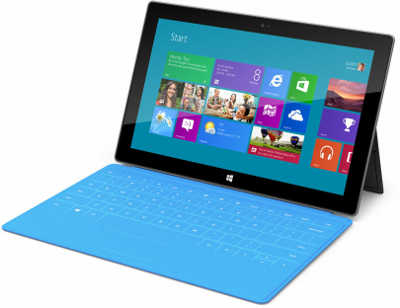| The State of Windows 8 |
| Written by Mike James | |||
| Friday, 29 June 2012 | |||
Page 2 of 2
Death of the desktopAll of this revolution is motivated by one idea - that the desktop is dead. A recent report by Gartner claims that this is the case and desktop apps will wither away over the next then years. The advice is that you should switch your attention to Metro apps now for all new applications. Gartner claims that this is a technology shift similar to what happened when DOS was replaced by Windows - which it says took eight years to complete. The technological shift isn't quite the same - Windows needed bigger hardware and the shift was slow, because of the upgrade costs. In this case we are moving to less capable hardware and the software switch reflects this. It is true that touch brings with it usability but as we watch the hardware will improve and perhaps in just a few years we will be wondering why WinRT/Metro is so restrictive and primitive. You can see the development in both iOS and Android. The latest Android OS is more powerful than the original soon it will be a desktop OS running on mobile hardware. And presumably one day soon iOS will replace OSx and there wont be much resistance because iOS will have evolved to have the same facilities as OSx.
In creating WinRT Microsoft is running backwards to join the pack rather than allowing them to catch up with it. Is the desktop operating system doomed? Probably not. There are an increasing number of situations in which consumption of media is the main occupation and we are at long last starting to distinguish between content consumption and content creation. In general, you need more powerful hardware for content creation and you need the sorts of facilities that current desktop operating systems provide. Unification, when it comes, should come from the top down not the bottom up. That is, as mobile devices become increasingly powerful from a hardware point of view they do not need the special care that mobile operating systems are designed to give them. It is not that my desktop super computer of the future will be crippled by running a mobile OS; it is more that the mobile device will be able to run the same powerful OS. Unification by reduction isn't worth the effort. The final observation is that the almost universal tool of consumption is the web browser. It seems only logical that this will eventually be the only OS needed for mobile devices. It doesn't matter if it turns out to be called Chrome or Boot to Gecko the browser OS is more attractive than iOS, Android or WinRT and will probably inherit the earth when it comes to consuming content. So what would I suggest for a good set of choices in this most uncertain time? The first is that it probably isn't worth thinking about Win32 any more - unless there is a U-turn of unprecedented proportions, Microsoft is replacing Win32 by WinRT and the hideous Metro. Put simply - the chances that there is a future in Win32 technologies are slim. If you want to stick with Microsoft, because you believe it has a future, then learn to write WinRT/Metro apps and, most important, learn well enough to overcome its limitations within its rules, i.e. without cheating and using Win32 API calls like Microsoft does. This probably means using WinRT from C++, which is without doubt its "native" and preferred language. If you want to write "noddy" apps that don't go too deep into the system, then choose HTML/JavaScript. The reason is that, despite being more difficult to complete, you can arrange to run the apps on other systems with minimal effort should things not work out. Of course, if you have no faith in the future of Windows simply stick with HTML and JavaScript and whatever you need to make it all work. Not easy. Not fun. But, and this is really the entire point, your future will not be based on the arbitrary decisions of marketing departments and non-technical departmental in-fighting, but rather on technical reasons no matter how imperfect. Related ArticlesWindows 8 Release Preview - Marriage of Inconvenience Windows 8: A Frankenstein Monster Three Windows 8 Editions Clarify the WinRT Position How Microsoft Could Have Done Metro Why your next language better be C++
Comments
or email your comment to: comments@i-programmer.info
To be informed about new articles on I Programmer, install the I Programmer Toolbar, subscribe to the RSS feed, follow us on, Twitter, Facebook, Google+ or Linkedin, or sign up for our weekly newsletter. |
|||
| Last Updated ( Friday, 29 June 2012 ) |


